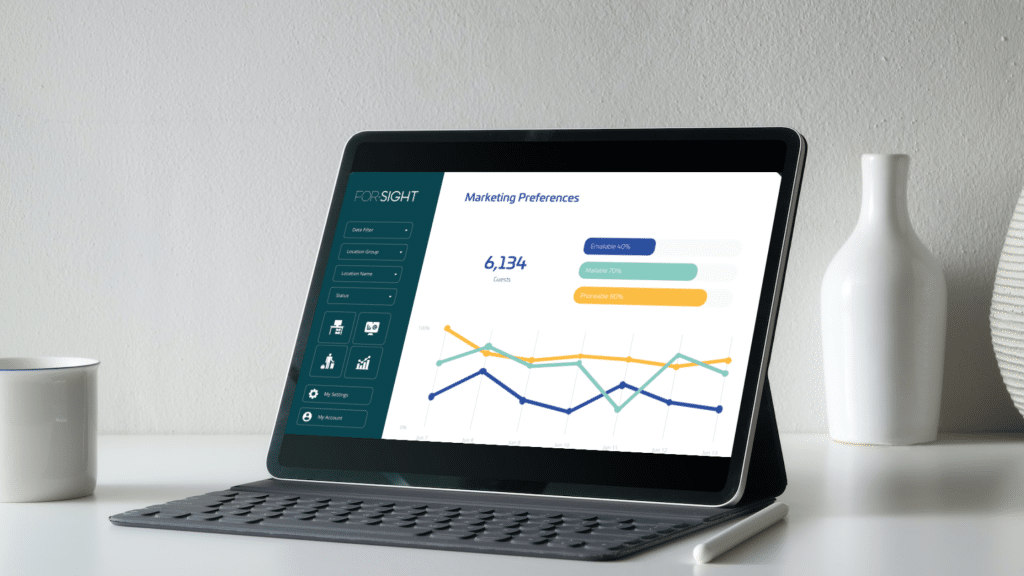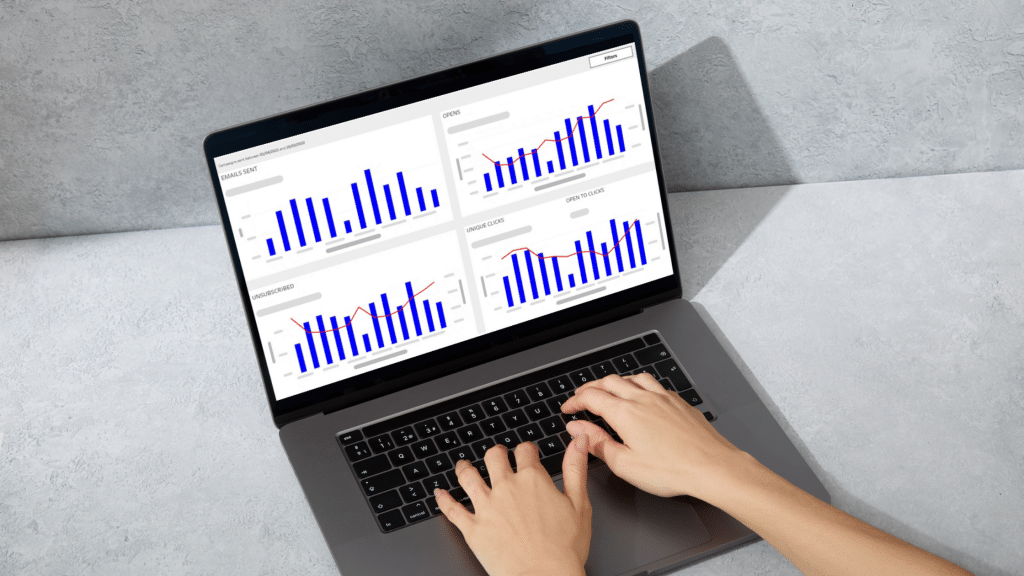If you’re steering the ship of a charming independent property or a boutique hotel, this guide on mastering the marketing of multiple offers is crafted especially for you.
Hoteliers are often presented with the challenge of marketing a plethora of offers. From romantic wedding packages to rejuvenating spa treatments, each offer demands a distinct marketing touch.
But how can you seamlessly manage these multiple offers without feeling swamped?
Let’s explore:
Summary:
- Utilise Automation
- Embrace a Tailored CRM
- Foster a Collaboration with Revenue Management
- Continuously Monitor, Learn and Adjust
1. Utilise Automation
Email marketing automation emerges as a beacon of efficiency. It’s not just about sending out emails; it’s about delivering the right message, to the right person, at the right time. Here’s how boutique hotels can harness its power:
Timely Triggers:
- Set up automated emails based on specific guest actions or milestones. For instance, after a guest checks out, they could receive a thank-you email. A month before their anniversary, send them a special offer to celebrate at your hotel.
Segmentation and Personalisation:
- While our previous insights, like Advanced Personalisation Techniques for Resorts, have touched upon the importance of personalisation, it’s worth reiterating.
- The foundation of effective marketing is understanding your audience. Begin by segmenting your clientele based on their booking history, preferences, and feedback. Guests who enjoyed the spa might receive promotions for new treatments, while those who dined at your restaurant might get updates on upcoming gourmet nights.
- Automation tools can help you send these tailored messages without manual sorting. By categorising guests, you’re not just sending out marketing messages; you’re curating experiences.
- This tailored approach can lead to higher conversion rates and enhanced guest satisfaction.
Consistent Engagement:
- Automated newsletters can keep past guests engaged with updates from your property, stories from the locale, or exclusive offers. This consistent touchpoint keeps your hotel top-of-mind for their next getaway.
Feedback Loop:
- After a guest’s stay, automate a feedback request email. This not only ensures you’re consistently gathering insights but also shows guests that you value their opinion.
Performance Analysis:
- Analytics on open rates, click-through rates, and conversions is invaluable. Understand which campaigns resonate, and refine your strategies accordingly.
By integrating email marketing automation, boutique hotels can ensure they’re not just sending emails, but curating experiences and offers that resonate deeply with their guests, all while saving time and resources.
2. Embrace a Tailored CRM

A CRM will not only streamline your campaigns but also offer a panoramic view of guest interactions, enabling actionable insights. Instead of juggling multiple tools, consider investing in a platform that’s a one-stop-shop for all your marketing needs.
360-Degree Guest Profiles:
- A CRM can consolidate guest data from various touchpoints, be it your PMS, Spa, Table Reservations, Direct Bookings or even feedback forms. This provides a holistic view of each guest, from their preferences to their past interactions with your hotel.
Tailored Marketing Campaigns:
- With the data stored in the CRM, you can craft personalised marketing campaigns. Did a guest inquire about a spa package but didn’t book? Perhaps a special offer or a gentle reminder might nudge them.
Enhanced Guest Experience:
- By storing preferences, from room choices to dietary requirements, a CRM ensures that returning guests don’t have to repeat themselves. This attention to detail elevates the guest experience.
Streamlined Communication:
- A CRM can integrate with other tools, ensuring seamless communication across departments. If a guest mentions a special occasion during booking, both the front desk and the kitchen can be alerted to prepare a surprise.
Data-Driven Decisions:
- With its analytics capabilities, a CRM can provide insights into guest behavior, booking trends, and campaign performances. This data is invaluable for refining marketing strategies and optimising guest experiences.
Feedback Management:
- CRMs can automate the process of collecting post-stay feedback, ensuring consistent insights. Moreover, any feedback, be it positive or areas of improvement, can be stored and accessed for future reference.
By embracing a CRM system, boutique hotels can ensure they’re not just managing guests but building lasting relationships, all while optimising operations and marketing efforts.
3. Foster Collaboration with Revenue Management
Our previous discussions, like Maximising Revenue through Alignment, have emphasised the symbiotic relationship between marketing and revenue management. Revenue management isn’t just for large hotels. Even for boutique properties, understanding room demand, seasonality, and pricing strategies is crucial. Collaborate closely with your revenue team or consultant. Adjust offers based on peak seasons and local events.
Dynamic Pricing:
- Boutique hotels should adopt dynamic pricing strategies, where room rates fluctuate based on real-time demand, local events, and seasonality. This ensures that the hotel remains competitive while maximising revenue.
Competitor Analysis:
- Regularly monitor the pricing strategies of competitors. This doesn’t mean undercutting them, but understanding the market landscape and positioning your offers accordingly.
Yield Management:
- This involves selling the right room, to the right guest, at the right time, for the right price. By analysing booking patterns, guest preferences, and cancellation rates, boutique hotels can optimise both occupancy and revenue.
Package Offerings:
- Instead of just selling rooms, create enticing packages. Combine stays with spa treatments, gourmet dinners, or local tours. This not only increases the perceived value but also enhances guest experience and revenue per booking.
Forecasting:
- Use historical data and current market trends to forecast demand. This helps in proactive decision-making, be it launching a special offer during expected low-demand periods or adjusting prices during peak seasons.
Collaboration with Marketing:
- Revenue management and marketing should work hand-in-hand. If there’s a special event in town, marketing can promote it, while revenue management ensures pricing is optimised for increased demand.
Continuous Learning and Adaptation:
- The world of revenue management is ever-evolving. Regular training, attending workshops, or even collaborating with revenue management consultants can provide fresh perspectives and strategies.
By mastering the nuances of revenue management, boutique hotels can ensure they’re not just filling rooms, but securing every opportunity for profitability and guest satisfaction.
4. Continuously Monitor, Learn, and Adjust
One of the perks of boutique hotels is their adaptability. Make it a habit to periodically assess the performance of your offers. Did the ‘Winter Wonderland’ package outperform the ‘Summer Retreat’? Delve into the why. Embrace feedback. Decode the reasons behind the success or pitfalls of campaigns and recalibrate your strategies. Agility isn’t just an asset; it’s a superpower.
Bonus: Visual Storytelling – Make Your Offers Irresistible

A picture is worth a thousand words, and for boutique hotels, this couldn’t be truer. With their unique architecture, decor, and ambiance, visuals are potent marketing weapons. Let the essence of your property shine through. Paint a picture that allows potential guests to immerse themselves in the experience, making your offers truly irresistible.
Conclusion
Juggling multiple offers might seem like a Herculean task, but with the right strategies, tools, and mindset, it transforms into an art. An art where hoteliers can effectively promote a diverse range of offers, ensuring profitability while crafting unforgettable guest memories.
To manage these offers without feeling overwhelmed:
- Automation is key, especially in email marketing. It ensures timely, personalised communication, consistent engagement with past guests, and provides valuable performance analytics.
- CRM Systems streamline guest interactions, offering a comprehensive view of each guest’s history and preferences. This data-driven approach aids in crafting personalised marketing campaigns, enhancing guest experiences, and fostering lasting relationships.
- Revenue Management is essential, even for boutique properties. It involves understanding and responding to market activity, adopting dynamic pricing strategies and creating enticing packages that enhance guest value and experience.
- Agility is a boutique hotel’s strength. Regularly reviewing offer performances, embracing feedback, and adjusting strategies ensures the hotel remains responsive to market changes and guest preferences.
Lastly, the power of Visual Storytelling cannot be understated. High-quality visuals capture the unique essence of the property, making offers more appealing to potential guests.
For a bi-weekly check-in to the latest hospitality trends alongside the best of our latest blogs, case studies and webinars – Subscribe to Hospitality For-Cast on LinkedIn, the For-Sight Newsletter.
Interested to see the For-Sight? Book a discovery call today